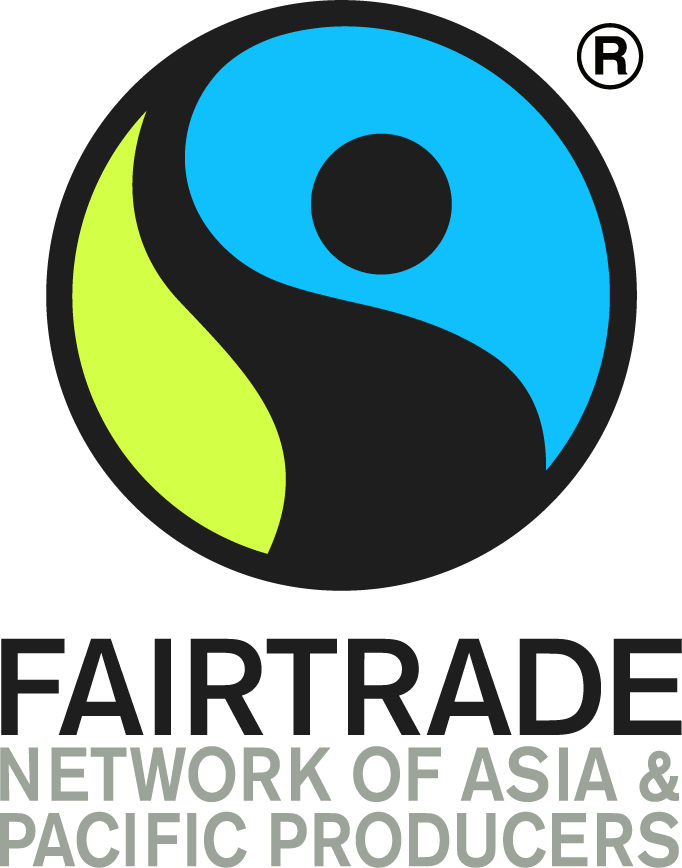Fairtrade NAPP’s Training on Gender Mainstreaming for 109 Participants from Fairtrade Farmers' Cooperatives in Vietnam co-funded by the European Commission
In a strategic effort to advance gender equality across agricultural value chains, Fairtrade NAPP (Network of Asia and Pacific Producers) recently concluded a comprehensive gender training program, co-funded by the European Commission under the EC Funding Framework Partnership Agreement (EC FFPA). As part of the broader mission to empower over 1,900 Fairtrade Producer Organizations globally, this initiative focused on strengthening gender inclusion and leadership across cooperatives in Vietnam.


Strengthening Fairtrade through Gender Inclusion
The EC FFPA supports Fairtrade as a member-based, civil society umbrella organization—active at regional, European Union and global levels. Within this strategic framework, Fairtrade NAPP has prioritized gender inclusion as a critical pillar for sustainable development in agriculture. The training program was designed to translate Fairtrade’s gender strategies into tangible action, empowering producers—particularly women—with tools and knowledge to thrive in leadership roles and value chains.
Training Objectives and Methodology
The core objectives of the training included:
- Raising awareness on gender equality and its relevance in Fairtrade.
- Equipping cooperatives with practical tools to develop and implement gender strategies.
- Guiding cooperatives in creating action plans with clearly defined roles and responsibilities.
- Ensuring long-term sustainability of gender mainstreaming efforts.
The training employed participatory methods, such as group discussions, presentations, and SWOC (Strengths, Weaknesses, Opportunities, Constraints) analysis, creating a dynamic and inclusive environment for engagement and learning.


Key Training Sessions
1. Introduction to Gender and Fairtrade
The session opened with an ice-breaking game to foster a relaxed and open atmosphere. A presentation on key gender concepts—such as sex, gender, equality, and mainstreaming—was followed by a Q&A to connect these ideas to cooperative operations in Vietnam. The facilitator also introduced Fairtrade NAPP’s gender policy and its alignment with Sustainable Development Goal 5 (Gender Equality), emphasizing practical steps for implementation.
2. Gender Inequality in Agricultural Cooperatives
Participants conducted a gender assessment of the coffee production chain, revealing critical insights. Women were found to play significant roles in market decisions and financial management, often bearing a dual burden of household responsibilities. However, these roles are underrecognized, and participation in social or leadership roles remains limited. The group discussions allowed participants to analyze the structural barriers within their cooperatives and propose inclusive practices.


3. Gender Mainstreaming Tools and Strategies
Through collaborative SWOC analysis, participants identified internal strengths such as existing gender policies, and external opportunities like growing markets for women-led products. They also addressed weaknesses, such as a lack of leadership roles for women, and external constraints, including cultural norms. This analysis helped lay the groundwork for actionable strategies to promote gender equity.
4. Gender Compliance and Reporting Mechanisms
This session focused on establishing protocols for gender equity, including non-discrimination policies, inclusive workplace guidelines, and safe reporting mechanisms. Participants explored ways to develop confidential and accessible reporting channels and emphasized the importance of ongoing gender sensitivity training, monitoring systems, and fostering inclusive team cultures.


5. Developing Gender Action Plans
Drawing on previous sessions, each cooperative developed a draft Gender Action Plan for 2025–2027. The plans addressed key gaps such as limited leadership roles for women, lack of access to training, and unequal participation. Proposed actions included training programs, start-up support for women-led initiatives, health and wellness promotion, and the creation of monitoring systems to track progress.
Key Outcomes and Impact
The training yielded several notable results:
- Engagement and Participation: All 109 participants—91 women and 18 men—actively contributed to the training, sharing their experiences and perspectives, and fostering a collaborative learning space.
- Improved Understanding: Knowledge assessments showed a 40% increase in awareness of gender equality concepts. Prior to the training, only 30% of participants demonstrated a foundational understanding; this rose to 70% post-training.
- Strategic Planning: Four cooperatives—EATU, EakMat, EaKiet, and DakDam/Thuan An—developed tailored gender action plans, reflecting a strong commitment to systemic change.
- Commitment to Implementation: Participants expressed a clear dedication to applying gender principles in their operations, including establishing safe reporting systems and embedding inclusivity in cooperative culture.


A Path Forward
This gender training initiative is not only a step toward empowering women in agriculture—it represents a long-term vision of equitable, inclusive, and sustainable Fairtrade systems. Through targeted training and participatory planning, Fairtrade NAPP and its partners are cultivating leadership, promoting intergenerational dialogue, and unlocking the full potential of all members within producer organizations.
As Fairtrade continues to champion gender equity across global supply chains, programs like this ensure that no voice is left unheard—and every contribution is valued.
